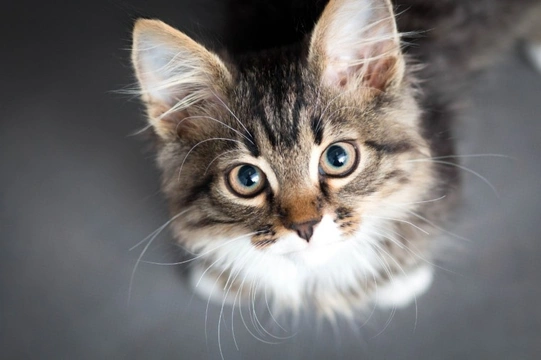
What factors are most important to cat owners when choosing a veterinary clinic
Choosing and registering with a local vet if you’re a cat owner is very important. This is not only in order to ensure that if your cat had an accident or became ill, you’d have someone to turn to, but also because preventative healthcare is really important too.
If your cat isn’t registered with a vet and they needed treatment in an emergency, any clinic would do their best to help – but this doesn’t necessarily mean they would be able to. If they were already dealing with another emergency of equal or more acute severity with a registered client, they would be logistically unable to help you, and even if they could help, providing all of the basic information on your pet, their prior health and general details takes up valuable time that delays them receiving treatment.
Most cat owners in the UK understand and appreciate the value of registering with a vet, if only to save time in an emergency; in fact, 84% of the UK’s cats are registered with a named clinic, according to the results of a recent survey conducted by the PDSA.
In order to understand what motivates cat owners to register with a veterinary clinic and what makes them choose one specific clinic over alternatives, the survey also asked respondents what factors they take into account when choosing a specific clinic, why they chose to register with a clinic at all, and what is important to them when making a final decision.
With this in mind, this article will highlight the most important things that cat owners look for in a veterinary clinic, and what made them choose the clinics they did. Read on to learn more.
To ensure that their cat gets regular health checks
Out of the surveyed cat owners who were registered with a named vet, 62% of them stated that one of the reasons for this was to ensure that their cat got their regular (usually annual) veterinary health checks. This is a responsible and important decision to make to protect your cat’s health for the future.
Because of the need for vaccination
60% of the cat owners whose cats were registered with a vet said that one of their reasons for registering was in order to get their cat vaccinated against contagious health conditions, and/or so that they could receive their annual booster shots throughout their life.
To gain access to recommended flea and worming treatments
Many of the best, safest and most effective flea and worming treatments for cats can only be bought from veterinary clinics, either as prescription-only items, or as veterinary exclusives that can only be sold to registered clients whose pets have been seen in the clinic within the last year.
Additionally, your vet will be able to advise on the best products for your own cat, as well as monitoring their effectiveness.
All of these advantages mean that 43% of cat owners who are registered with a clinic gave these reasons as factoring into their decision.
Access to help and advice if needed
56% of cat owners who have a named vet said that the peace of mind that comes with knowing that they have a qualified and experienced professional to call on for help and reassurance if needed contributed to their decision to register too.
Registered due to necessity
Finally, 24% of cat owners, or almost a quarter of respondents, said that they only actually registered in the first place because their cat was ill, and they had to do so in order to access treatment.
This still means that once registered, they benefit from all of the over advantages outlined above too, however.
Why do cat owners choose the exact clinic that they do?
Most local areas of the UK as well served by several different veterinary clinics, providing a reasonable range of options for most cat owners. Provision of cat-friendly clinics and participation in the accredited Cat Friendly Clinic scheme are much more common among local practices today too, once more levelling the playing field and opening up the range of options that cat owners have to choose between.
So, exactly why do cat owners pick the exact clinic they end up choosing? Actually, the majority, 57% of cat owners, simply picked the nearest clinic to their home! Only 30% of cat owners chose their clinic due to it having the best reputation, and 29% as a result of receiving great customer service.
Proximity is certainly a factor to consider when choosing a clinic, not least because you might need to get your cat to the clinic quickly in an emergency. However, it is also important to find out, if this is part of your selection criteria, if the clinic provides its own out-of-hours care.
If they do not, the benefit of registering with a very close by clinic might be negated; particularly if their out of hours coverage is in another town entirely. This is becoming increasingly common as more and more large chain clinics open up across the UK, and either buy out, partner with, or provide out of hours coverage for formerly independent clinics that historically provided their own out of hours care.
If this is the case, you may well find that a clinic just a couple of miles further from home that does provide its own emergency coverage would be a wiser choice in the long run.



